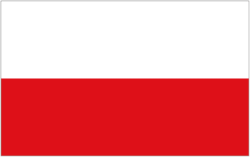Fracking watch: Poland figures out what CA hasn’t
May 6, 2013
By Chris Reed
Last week, the state Legislature took a first step toward blocking fracking in California. An Assembly committee passed three anti-fracking measuers. The first coverage of the Assembly votes by the Ventura County Star did not note that the Obama administration’s first secretary of energy and his replacement consider fracking just another heavy industry, or that the president used fracking’s success in triggering a natural gas boom as a 2012 campaign applause line.
But what’s new? The California media using the preferred narrative of the Sierra Club on environmental issues is the norm. It wasn’t until this year, for example, that the Los Angeles Times acknowledged how risky AB 32 is for the state’s economy.
To counter this pathetic groupthink, since April 27, I’ve blogged every morning about the nations around the world that are embracing hydraulic fracturing, or fracking, in oil and natural gas exploration on economic competitiveness grounds. So far I’ve covered Germany, China, Russia, Saudi Arabia, Brazil, Canada, Argentina, Mexico and South Africa. Now it’s Poland’s turn. What’s my point? As I’ve written here before, it’s that the fracking/brown energy revolution is coming, regardless of what greens in the Golden State and Europe want, and that California can either join in the party or get left behind.
 Fracking sanity chapter No. 10: Poland
Fracking sanity chapter No. 10: Poland
The fracking debate in Poland has taken odd twists not seen in the nine other nations I’ve written about. Here’s where it stood in fall 2011, per the London Independent:
“At an economic forum in Poland … the hottest topic … was of the potential for shale gas, a resource that has quietly altered the balance of energy provision in the United States and helped bring prices there down by a fifth in the past five years.
“Initial surveys indicate Poland has enormous reserves of shale gas. One from the US Department of Energy, suggestsPoland could have as much as 5.3 trillion cubic metres — equivalent to 300 years’ domestic consumption.
“But drilling for shale gas is controversial, especially among environmentalists. Although the technique — which involves extracting the gas by blasting the shale rock layers with high pressure sand, water and chemicals – has been known for a century, it is only in the past decade that it has become economically and technologically viable. But many fear that such “fracking” causes subsidence and contaminates ground water, and it has been banned in France, Switzerland and some US states …
“The Green movement also fears that new, and exploitable, supplies of gas could reduce prices to the point where investment in alternative energy sources, such as wind and wave power does not make economic sense.”
Backing fracking as a ‘national mission’
Wow. The London Independent makes a point that the California media pretend isn’t true or relevant. All hail the Independent. Back to its 2011 Poland coverage:
“In Poland … exploitation of shale gas is well on the way to becoming something of a national mission. Poland’s Prime Minister, Donald Tusk, has described shale gas as his country’s’great chance’ to turn Poland from an energy importer to a major exporter within a generation. And the subtext for Warsaw is that shale gas could not only make Poland into an exporter, but also end its age-old energy dependence on Russia.”
So how has this angle driven the politics of fracking in Poland? To this result, which may seem absurd to any American but maybe not to Poles with a sense of history, especially those aware of rumors that Russia is behind anti-fracking campaigns much as the Soviet Union was the muscle behind the nuclear freeze movement of the early 1980s. This is from an April account in priceofoil.org:
“The Polish government is proposing new [fracking] legislation which campaigners argue would ‘effectively eliminate the possibility of organised opposition.’ This is happening in a country where campaigners say they are already operating in a ‘climate of fear’.
“Under new laws being proposed, groups will only be able to participate in the legal debate over fracking if they have been in existence for over 12 months.
“According to an article in Natural Gas Europe: ‘This will mean that community groups and organisations which have only just formed” in response to the government’s new fracking plans ‘will be unable to participate in decision making processes that directly affect them.'”
Now this, of course, is awfully sketchy. But Russia does have a huge interest in maintaining the status quo — and a history of duplicity.
In California, of course, the choice about whether to pursue fracking is much more straightforward. At least in theory. One would think the Obama administration’s acceptance would be a key factor in this debate. One would think.
Fracking watch: Previous posts
No. 1: Germany
No. 2: China
No. 3: Russia
No. 4: Saudi Arabia
No. 5: Brazil
No. 6: Canada
No. 7: Argentina
No. 8: Mexico
No. 9: South Africa
Related Articles
CHiPS pass around stolen nude photos of suspects
California has come a long way from the innocent days of the “CHiPS” TV series of more than 30 years
Eco-phony Arnold tools around in gas-guzzling Mercedes SLS AMG
March 11, 2013 By John Seiler According to the Daily Mail: “He has been seen enjoying a number of dates
Ex-CA Senate Dem candidate tees off on immigration ‘reform’
April 17, 2013 By Chris Reed Mickey Kaus, the Los Angeles journalist and author who ran against Sen. Barbara Boxer



